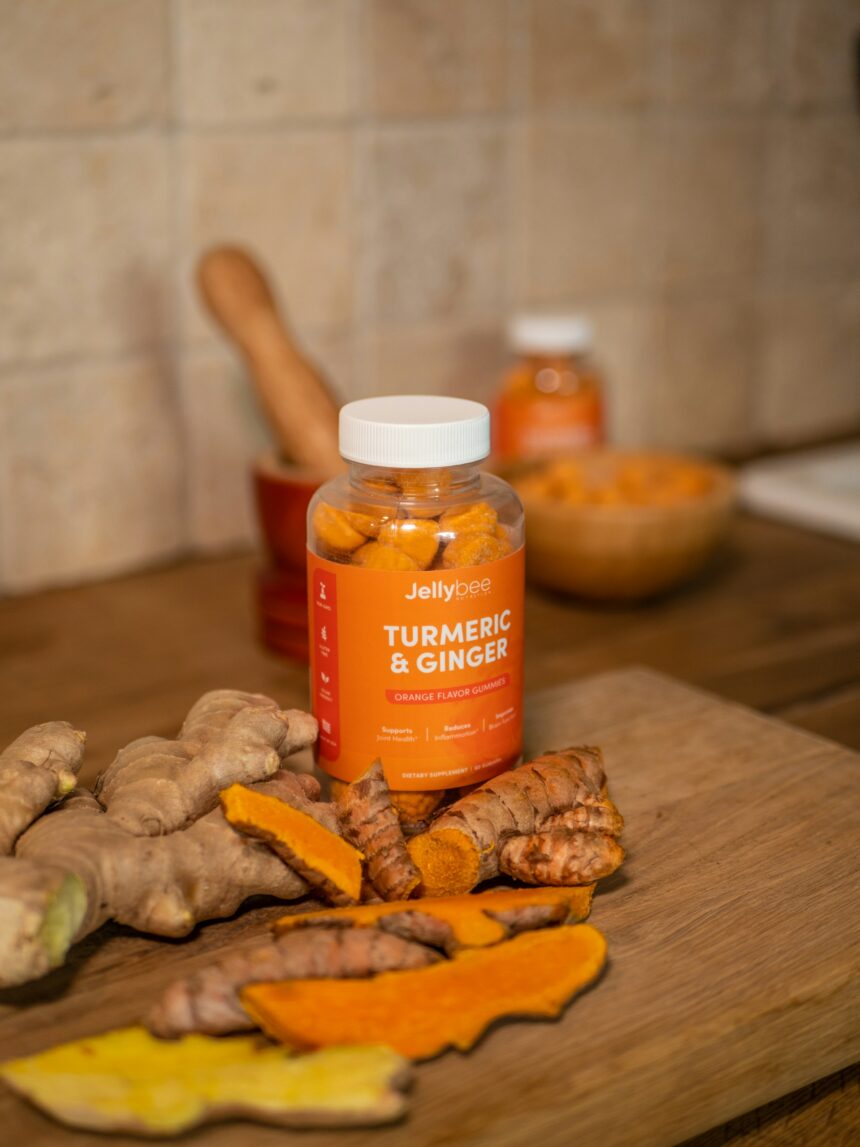White blood cells, commonly known as leukocytes, are vital components of the body’s immune system. They help to fight off infections and protect the body from disease. There are many different types of white blood cells, each with its specific function. Some white blood cells, such as neutrophils and macrophages, are phagocytic, which means they engulf and destroy foreign particles. Other white blood cells, such as lymphocytes, are responsible for producing antibodies, which help to neutralize toxins and pathogens.
Several herbs have been shown to increase white blood cell production. These herbs can be used to help prevent and treat infections, and to boost the immune system.
15 Herbs That Increase White Blood Cells:

1. Astragalus
Astragalus is a traditional Chinese herb that has been used for millennia to improve the immune system. It is thought to work by increasing the production of white blood cells, including neutrophils and macrophages. Astragalus has also been shown to help protect the body from the effects of radiation and chemotherapy.
2. Echinacea
Echinacea is a popular herb that is used to prevent and treat colds and flu. It is thought to work by stimulating the immune system and increasing the production of white blood cells. Echinacea has also been shown to have antiviral and antibacterial properties.
3. Garlic
Garlic is a powerful herb that has a number of health benefits, including the ability to boost the immune system. Garlic is thought to work by increasing the production of white blood cells and by stimulating the activity of natural killer cells, which are a type of white blood cell that helps to destroy cancer cells and virus-infected cells.
4. Ginseng
Ginseng is a traditional Chinese herb that has been used for centuries to improve overall health and well-being. It is thought to work by boosting the immune system and increasing the production of white blood cells. Ginseng has also been shown to help reduce stress and improve energy levels.
5. Green Tea
Green tea is made from the leaves of the plant known as Camellia sinensis. It is a rich source of antioxidants, which are compounds that help to protect the body from damage caused by free radicals. Green tea has also been shown to boost the immune system and increase the production of white blood cells.
6. Licorice Root
Licorice root is a traditional Chinese herb that has been used for centuries to treat a variety of health conditions, including respiratory infections and sore throats. It is thought to work by soothing the mucous membranes and increasing the production of white blood cells.
7. Olive Leaf Extract
Olive leaf extract is a natural compound that is derived from the leaves of the olive tree. It is a rich source of antioxidants, which are compounds that help to protect the body from damage caused by free radicals. Olive leaf extract has also been shown to boost the immune system and increase the production of white blood cells.
8. Oregano
Oregano is a popular herb for cooking. It is a rich source of antioxidants, which are compounds that help to protect the body from damage caused by free radicals. Oregano has also been shown to boost the immune system and increase the production of white blood cells.
9. Pau D’Arco
Pau d’arco is a traditional South American herb that has been used for centuries to treat a variety of health conditions, including cancer and infections. It is thought to work by boosting the immune system and increasing the production of white blood cells.
10. Reishi Mushroom
Reishi mushroom is a traditional Chinese mushroom that has been used for centuries to improve overall health and well-being. It is thought to work by boosting the immune system and increasing the production of white blood cells. Reishi mushroom has also been shown to have anti-cancer and anti-inflammatory properties.
11. Rhodiola Rosea
Rhodiola rosea is a traditional Scandinavian herb that has been used for centuries to improve physical and mental performance. It is thought to work by boosting the immune system and increasing the production of white blood cells. Rhodiola rosea has also been shown to help reduce stress and improve energy levels.
12. Schisandra Berry
Schisandra berry is a traditional Chinese herb that has been used for centuries to improve overall health and well-being. It is thought to work by boosting the immune system and increasing the production of white blood cells. Schisandra berry has also been shown to have anti-aging and antioxidant properties.
13. Siberian Ginseng
Siberian ginseng is a traditional Russian herb that has been used for centuries to improve overall health and well-being. It is thought to work by boosting the immune system and increasing the production of white blood cells. Siberian ginseng has also been shown to help reduce stress and improve energy levels.
14. Turmeric
Turmeric is a popular spice that is used in cooking. It is a rich source of curcumin, a compound that has been shown to have several health benefits, including the ability to boost the immune system and increase the production of white blood cells.
15. Vitamin C
Vitamin C is an essential nutrient that is required for several bodily functions, including the production of white blood cells. Vitamin C is found in a variety of fruits and vegetables, including oranges, grapefruit, strawberries, and broccoli.
How do these herbs increase white blood cell production?
The exact mechanisms by which herbs increase white blood cell production are not fully understood, but there are a number of ways in which they may work.
- Stimulating the immune system: Many herbs contain compounds that can help to stimulate the immune system, which can lead to an increase in white blood cell production. For example, echinacea contains alkylamides, which have been shown to activate macrophages and natural killer cells.
- Increasing the production of cytokines: Cytokines are signaling molecules that play a role in regulating the immune response. Some herbs, such as astragalus, contain compounds that can increase the production of cytokines that promote white blood cell production.
- Improving the function of white blood cells: Some herbs, such as garlic, contain compounds that can help to improve the function of white blood cells. For example, garlic contains allicin, which has been shown to increase the phagocytic activity of neutrophils.
- Reducing inflammation: Inflammation can suppress the production of white blood cells. Some herbs, such as turmeric, contain compounds that can help to reduce inflammation, which can lead to an increase in white blood cell production.
It is important to note that not all herbs have been shown to increase white blood cell production, and the effectiveness of herbs can vary depending on the individual. If you are considering using herbs to increase your white blood cell count, it is important to talk to your doctor first.
Here are some specific examples of how the herbs listed in the article may increase white blood cell production:
- Astragalus: Astragalus contains saponins, which have been shown to increase the production of cytokines that promote white blood cell production.
- Echinacea: Echinacea contains alkylamides, which have been shown to activate macrophages and natural killer cells.
- Garlic: Garlic contains allicin, which has been shown to increase the phagocytic activity of neutrophils.
- Ginseng: Ginseng contains ginsenosides, which have been shown to increase the production of white blood cells and improve their function.
- Green tea: Green tea contains catechins, which have been shown to increase the production of cytokines that promote white blood cell production.
- Licorice root: Licorice root contains glycyrrhizin, which has been shown to increase the production of white blood cells and improve their function.
- Olive leaf extract: Olive leaf extract contains oleuropein, which has been shown to increase the production of white blood cells and improve their function.
- Oregano: Oregano contains carvacrol, which has been shown to increase the production of cytokines that promote white blood cell production.
- Pau d’arco: Pau d’arco contains lapachol, which has been shown to increase the production of white blood cells and improve their function.
- Reishi mushroom: Reishi mushroom contains polysaccharides, which have been shown to increase the production of white blood cells and improve their function.
- Rhodiola rosea: Rhodiola rosea contains rosavins, which have been shown to increase the production of white blood cells and improve their function.
- Schisandra berry: Schisandra berry contains lignans, which have been shown to increase the production of white blood cells and improve their function.
- Siberian ginseng: Siberian ginseng contains eleutherosides, which have been shown to increase the production of white blood cells and improve their function.
- Turmeric: Turmeric contains curcumin, which has been shown to reduce inflammation and increase the production of white blood cells.
- Vitamin C: Vitamin C is required for the production of white blood cells.
It is important to note that these are just a few examples, and there are many other herbs that may also increase white blood cell production.
Can you recommend any specific dosage or form (such as capsules or teas) for these herbs?
Sure. Here are some specific dosage and form recommendations for the herbs listed in the article:
| Herb | Dosage | Form |
|---|---|---|
| Astragalus | 500-1000 mg | Capsules, tea |
| Echinacea | 250-500 mg | Capsules, tea, tincture |
| Garlic | 1-2 cloves | Fresh, cooked, capsules, tablets |
| Ginseng | 200-400 mg | Capsules, tea, tincture |
| Green tea | 2-3 cups per day | Tea, capsules, extract |
| Licorice root | 500-1000 mg | Capsules, tea, tincture |
| Olive leaf extract | 500-1000 mg | Capsules, tea, tincture |
| Oregano | 500-1000 mg | Capsules, tea, tincture |
| Pau d’arco | 500-1000 mg | Capsules, tea, tincture |
| Reishi mushroom | 500-1000 mg | Capsules, tea, tincture |
| Rhodiola Rosea | 200-400 mg | Capsules, tea, tincture |
| Schisandra berry | 500-1000 mg | Capsules, tea, tincture |
| Siberian ginseng | 200-400 mg | Capsules, tea, tincture |
| Turmeric | 500-1000 mg | Capsules, tea, tincture |
| Vitamin C | 500-1000 mg | Capsules, tablets, gummies |
It’s crucial to realize that these are only general advice. The optimal dosage and form of an herb may vary depending on the individual and the specific condition being treated. It is always best to talk to your doctor before starting any herbal supplement regimen.
Tips for using herbs to increase white blood cell production:
- Start with a low dose and increase the dose gradually as needed.
- Take herbs consistently for at least 2-3 weeks to see results.
- If you experience any side effects, stop using the herb and talk to your doctor.
- Be sure to purchase herbs from a reputable source and follow the dosing instructions on the product label.
Additional notes:
- Garlic and turmeric can be used fresh or cooked.
- Green tea may be eaten either hot or cold.
- Licorice root should be used with caution by people with high blood pressure or kidney disease.
- Olive leaf extract can be taken in capsule or liquid form.
- You may cook using fresh or dried oregano.
- Pau d’arco can be taken in capsule, tea, or tincture form.
- Reishi mushrooms can be taken in capsule, tea, or tincture form.
- Rhodiola rosea can be taken in capsule, tea, or tincture form.
- Schisandra berry can be taken in capsule, tea, or tincture form.
- Siberian ginseng can be taken in capsule, tea, or tincture form.
- Turmeric can be taken in capsule, tea, or tincture form.
- Vitamin C can be taken in capsule, tablet, or gummy form.
Are there any potential side effects or interactions with medications when using these herbs?
Yes, there are some potential side effects and interactions with medications when using herbs to increase white blood cell production.
Potential side effects
- Gastrointestinal upset: Some herbs, such as garlic and turmeric, can cause gastrointestinal upset, such as nausea, vomiting, and diarrhea.
- Skin reactions: Some herbs, such as echinacea and licorice root, can cause skin reactions, such as rashes and itching.
- Headache: Some herbs, such as ginseng and rhodiola rosea, can cause headaches.
- Interactions with medications
- Blood thinners: Some herbs, such as garlic and ginkgo biloba, can increase the risk of bleeding when taken with blood thinners, such as warfarin.
- Diabetes medications: Some herbs, such as ginseng and licorice root, can affect blood sugar levels and may interact with diabetes medications.
- Immunosuppressants: Some herbs, such as astragalus and echinacea, can stimulate the immune system and may interact with immunosuppressants, which are medications that suppress the immune system.
It is important to talk to your doctor before using any herbs to increase white blood cell production, especially if you are taking any medications.
General Precautions
- Do not use herbs if you are pregnant or breastfeeding.
- Do not use herbs if you have a bleeding disorder.
- Do not use herbs if you are allergic to them.
- Start with a low dose of any herb and increase the dose gradually as needed.
- If you experience any side effects from an herb, stop using it and talk to your doctor.
It is also important to note that the safety and effectiveness of herbs can vary depending on the quality of the product. Be sure to purchase herbs from a reputable source and follow the dosing instructions on the product label.
Conclusion
These are just a few of the many herbs that have been shown to increase white blood cell production. These herbs can be used to help prevent and treat infections, and to boost the immune system. If you are considering using herbs to increase your white blood cell count, it is important to talk to your doctor first.







